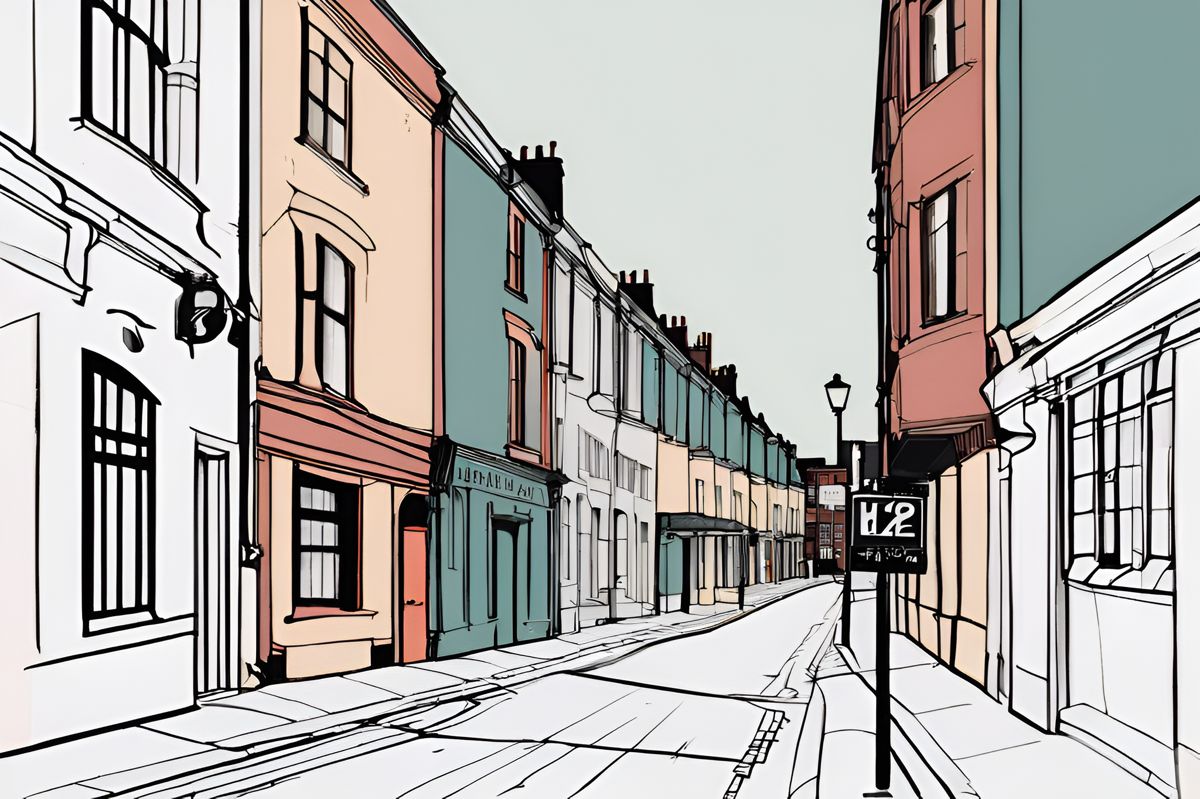The closure of Kirkgate in Leeds, the city’s oldest street, was due to a building collapse, causing significant financial strain on local businesses. Despite efforts from organizations like Leeds Civic Trust, the slow response from the council raises questions on whether the collapse could have been avoided and what future steps can be taken to revive this historic street.
Why did Kirkgate close and how is it affecting businesses?
Kirkgate, the historic street in Leeds, was closed due to the collapse of a building. Local businesses are severely affected, facing loss of trade and operational challenges like supply and waste management. The decline of Kirkgate and the slow council response raise questions about preventability and future revival efforts.
A Street Steeped in History Now Faces Uncertainty
Kirkgate, a thoroughfare brimming with history, is the oldest street in Leeds. Its story is rich with the vibrancy of days past, yet, in recent times, it has witnessed a period of decline and partial renewal. The fabric of the street itself has become a narrative of neglect, with tales hidden behind long-shuttered shopfronts. This year, that neglect had a tangible consequence – the dramatic collapse of a building. While thankfully, there were no casualties, the incident has led to Kirkgate being closed to traffic, resulting in a tangible dip in commerce for local businesses, who are now grappling with the aftermath and a significant loss of income.
The decline of Kirkgate has been a long-standing issue, one that organizations like the Leeds Civic Trust have been working against. Despite their efforts and the influx of £2.4 million from different funding sources, the street has struggled to realize its full potential. Vacant lots stand as silent witnesses to decades of disregard, though a steadfast core of independents have infused the area with new spirit. The concern now is that this resurgence may be stymied by the collapse, threatening the budding positivity that had begun to bloom on this historic street.
Businesses Bear the Brunt of the Collapse
Local businesses are feeling the ripple effects of the collapse, which has exacerbated existing challenges such as the cost-of-living crisis, the increase in operational costs, and the post-Brexit business landscape. Café bar Wapentake, a well-liked establishment, was recently pushed to the brink of closure, citing the aforementioned challenges compounded by the building collapse. Although the café bar has found new proprietors and remains open, the original owners have lost their livelihoods. This situation begs the question: could this have been avoided?
Kirkgate’s businesses are facing severe repercussions. Rob Wilson, the manager of the famed Duck & Drake pub, shared his insights, describing the street as once vibrant, now neglected. “They just left it to fall down,” he lamented, referencing the lack of attention given to the deteriorating buildings. Similarly, Cameron Bedford from the Doghouse bar and bagel shop reported a drastic drop in patronage, estimating a loss of 200 to 300 customers weekly, particularly over the weekends. For these establishments and others in the vicinity, the street’s closure has impacted not only their customer base but also logistics such as supply deliveries, waste collection, and has forced them to cut back on stock and employee hours.
The Slow Response and the Questions It Raises
As the street closure extends into months, frustration mounts among the affected businesses. Many feel that the council’s response has been lethargic and communication regarding the reopening timeline has been sparse. Martin Hamilton, Director of Leeds Civic Trust, voiced these frustrations, citing the urgency for action to prevent further discouragement among business owners. The question that looms large in the air is whether the council could have acted more swiftly to address the structural issues before catastrophe struck. These same inquiries are amplified by the history of neglect seen in other nearby historical buildings, where similar fates were narrowly avoided.
Leeds City Council is reportedly in dialogue with the property owner, but progress is sluggish at best. Stabilization work commenced in April but has since stalled, with no indication of resuming. A spokesperson for the council stated, “We’re in active discussions with the owner … to try to ensure that stabilisation and other work at the site.” Yet, the tentative language used does little to assuage the anxieties of local businesses seeking definitive action. The sentiment that prevails is one of missed opportunity – had there been an earlier intervention, the collapsed building might now be a thriving community asset instead of a blight on the historic street.
In their attempts to revive Kirkgate, the council has played a crucial role, but it’s clear that there remains much to be done to safeguard the street’s heritage and the businesses that have become its contemporary custodians. Efforts to reach the owners of the collapsed building for comment have been unsuccessful, leaving a critical aspect of this story untold. Without a clear path forward, the future of Kirkgate hangs in precarious balance, its fate hinging on the actions taken in the immediate future to revive and protect this iconic piece of Leeds’ urban tapestry.
- Kirkgate in Leeds closed due to a building collapse, causing financial strain on local businesses.
- Organizations like Leeds Civic Trust have been working to revive Kirkgate, but the street has struggled to realize its full potential.
- Local businesses, such as the Duck & Drake pub and Doghouse bar, have faced a significant loss of revenue and operational challenges.
- The slow response from Leeds City Council in addressing the building collapse has led to frustration among affected businesses.
- The future of Kirkgate remains uncertain, dependent on the actions taken to revive and protect this historic street.
